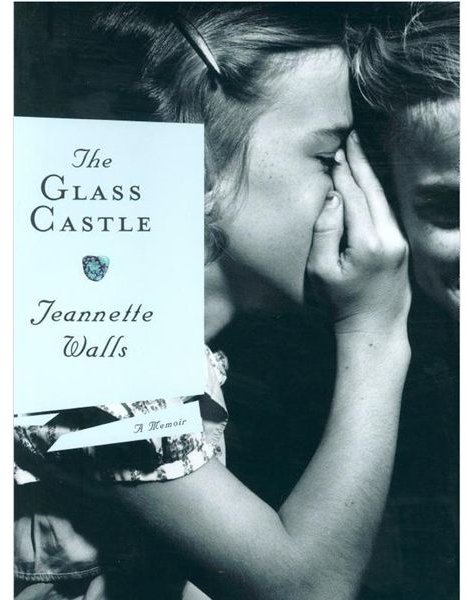"The Glass Castle" Book Review: Should You Pick This Book Up?
A Book in Common for Many Communities
Jeanette Walls took her childhood experiences, and instead of allowing them to overtake her, she turned them into a memoir. Unlike many memoirs, which become popular in university English departments, or become popular of their own accord because the writer was famous, this book received a lot of attention and praise. It was the book in common for many communities, and hundreds of thousands of people purchased the work. “The Glass Castle” was the inspiration for literary events and facilitated many conversations. It was the story of a woman who had grown up with parents who had eventually decided to be homeless. For many people, the idea of living as a homeless person is an unfathomable lifestyle that happens due to powers outside one’s control. Walls’ memoir challenged the way people spoke about those without homes and brought to light a very real issue — individuals who are homeless come from a variety of backgrounds and have a variety of reasons why they live on the streets. To pigeonhole the issue means that we lose sight of the nuances of individual situations.
Meet Jeanette and Her Family
The memoir opens with showing the disparity between Jeanette and her mother. Jeanette takes a taxi ride home while her mother picks food from a dumpster. The way in which Jeanette’s mother dismisses the situation — as one where she’s simply “recycling” other people’s belongings — sets the tone for the remainder of the book. When we move to part II, we start in childhood. Her mother is a painter, and they live in a trailer park somewhere in Arizona. However, it doesn’t take long before something happens. Young Jeanette is standing on a chair, cooking hot dogs, when her dress catches fire. Her father is off somewhere; her mother is working on a painting. Jeanette is three and she has a younger brother. She winds up in the hospital, and we find out — at a very early age — that she is surprisingly mature. Instead of crying or fussing, when the nurses tell her she’s going to be okay, she responds “I know…but if I’m not, that’s okay, too” (10). While in the hospital, her younger brother manages to cut his head open when he falls off the couch. The reader quickly learns that there is very little supervision of these kids, and that the parents are often too lost in their own fantasy world to recognize that there is something wrong.
The interesting thing about Jeanette describing her family life, is the cavalier way in which she reports the incidents. Instead of reporting incidents and placing moral judgments in them, she allows the reader to make judgments about events. It takes great skill for a writer to remove him or herself from the story in that way. At the same time, she tells the story in such a powerful way that you are drawn in from page one.
In addition to a younger brother, Jeanette has an older sister, Lori, who starts to question the lifestyle the family leads. In Las Vegas, her seven-year old sister asks four-year-old Jeanette whether she likes moving so much. We get the sense that the family moves around like nomads. Living in a trailer park for a little while, a Las Vegas motel for a month or so, and then moving on to the next adventure. It has to be difficult for children to move so much, and so often — and such movement would make it impossible for them to form any sort of roots.
Disparity
As you read the book, you get the sense that Jeanette’s father is extremely intelligent, and wants the kids to thrive — but that neither he nor his wife have any clue as to how to make that happen. In one scene, the children have reported to their father that they are hungry. Instead of making lunches at home, the father goes to the store and buys all the ingredients for bologna sandwiches. Then, he comes into the school cafeteria, grocery bag in hand, and gives the kids the sandwich-making supplies. He asks the children whether he’s ever let them down. Younger brother Brian responds, “Yes,” in a low voice (77-78).
The disconnect between reality and fantasy in the parents becomes more apparent as the children grow older. The solution for the parents to any sort of struggle is to move again to another city rather than stick it out. The kids begin to notice that their lives aren’t like the lives of other kids, and as they grow older, they begin to realize that although their father is a very smart man, he has a very serious problem. He’s an alcoholic.
Turning the Pages
Once you pick up “The Glass Castle,” it’s very difficult to put the book down. As you read, you realize that what you’re processing is very different from the emotions that go along with it. I think the most masterful part of Walls’ work is that she manages to evoke so much emotion in the reader without telling the reader what she felt — instead, you are put into the situations with her, and your heart reaches out.
It’s easy to see why this book was chosen by many communities to be a book in common. It gives a name and a face to those who are homeless, an explanation for how these individuals became that way, and gives voice the huge disparity sometimes that exists between parents and children. It’s an amazing story of success after serious hardship — and it’s a story that may bring tears to your eyes as you read. It’s definitely a story that should not be missed.
References
Walls, J. The Glass Castle. New York: Scribner, 2005.
